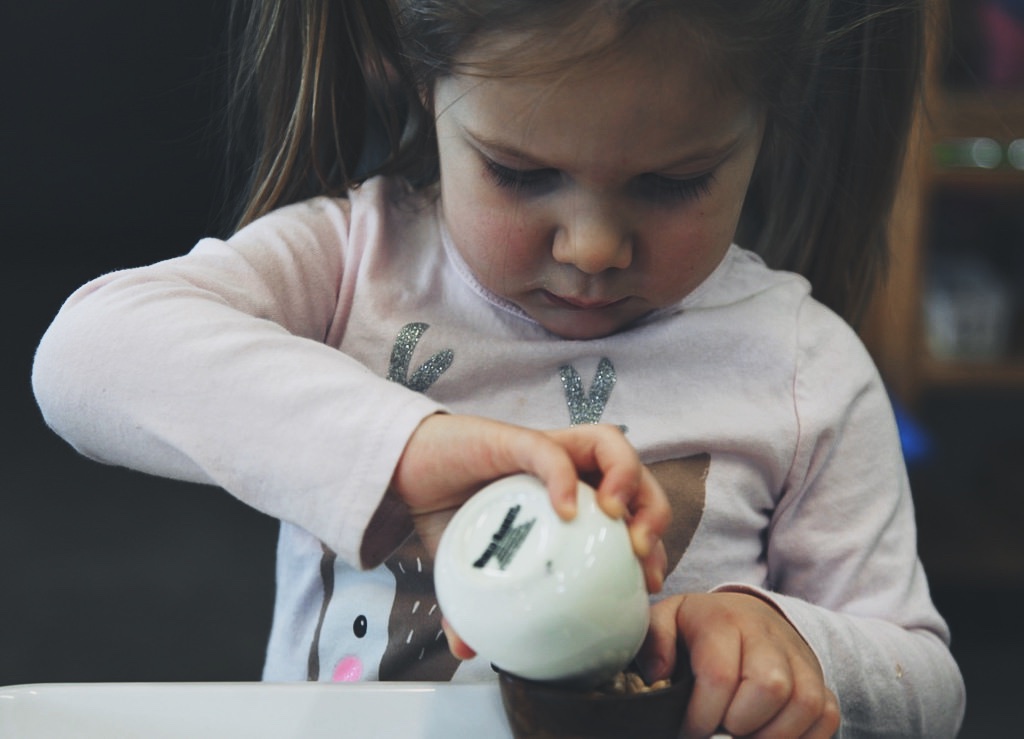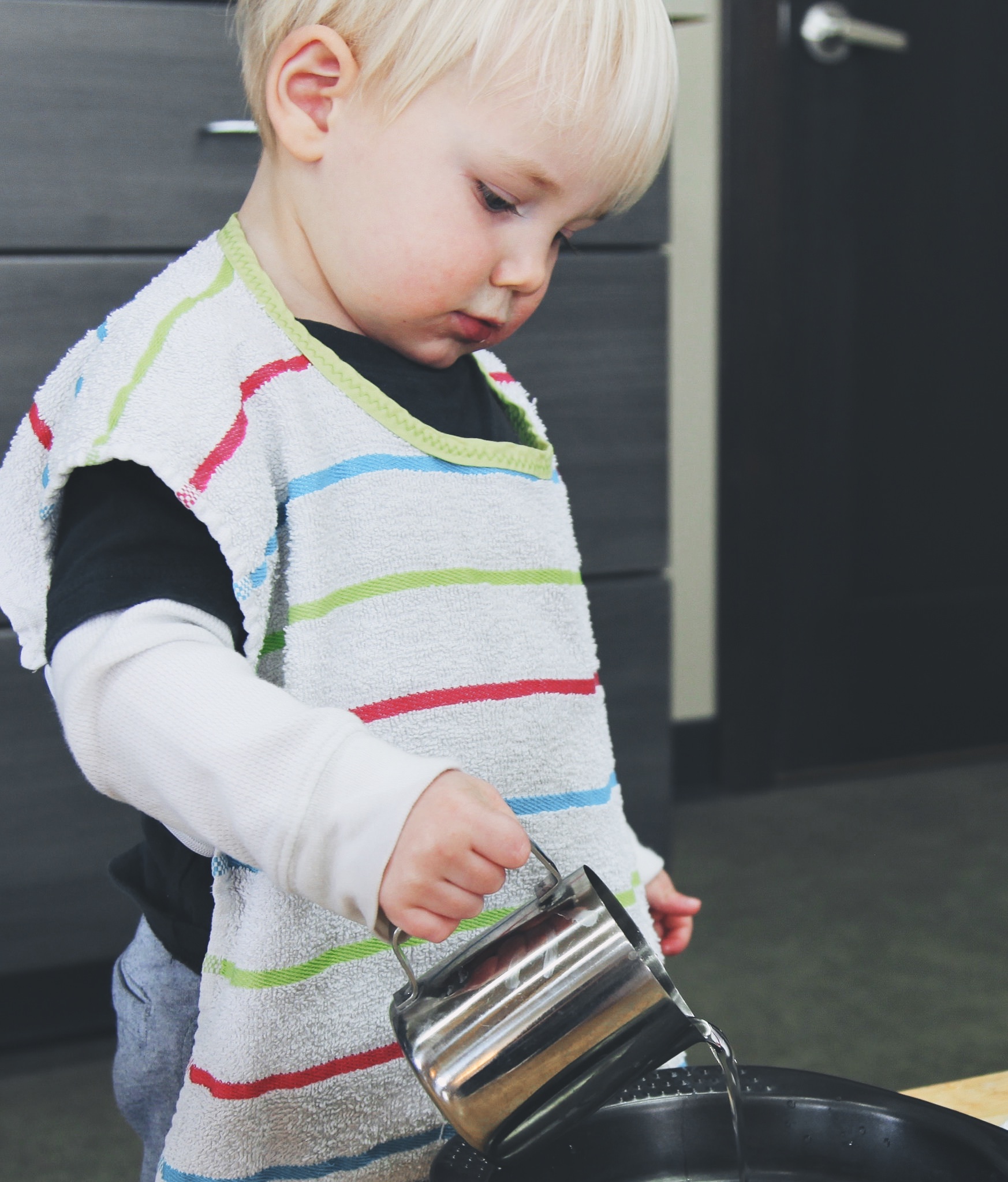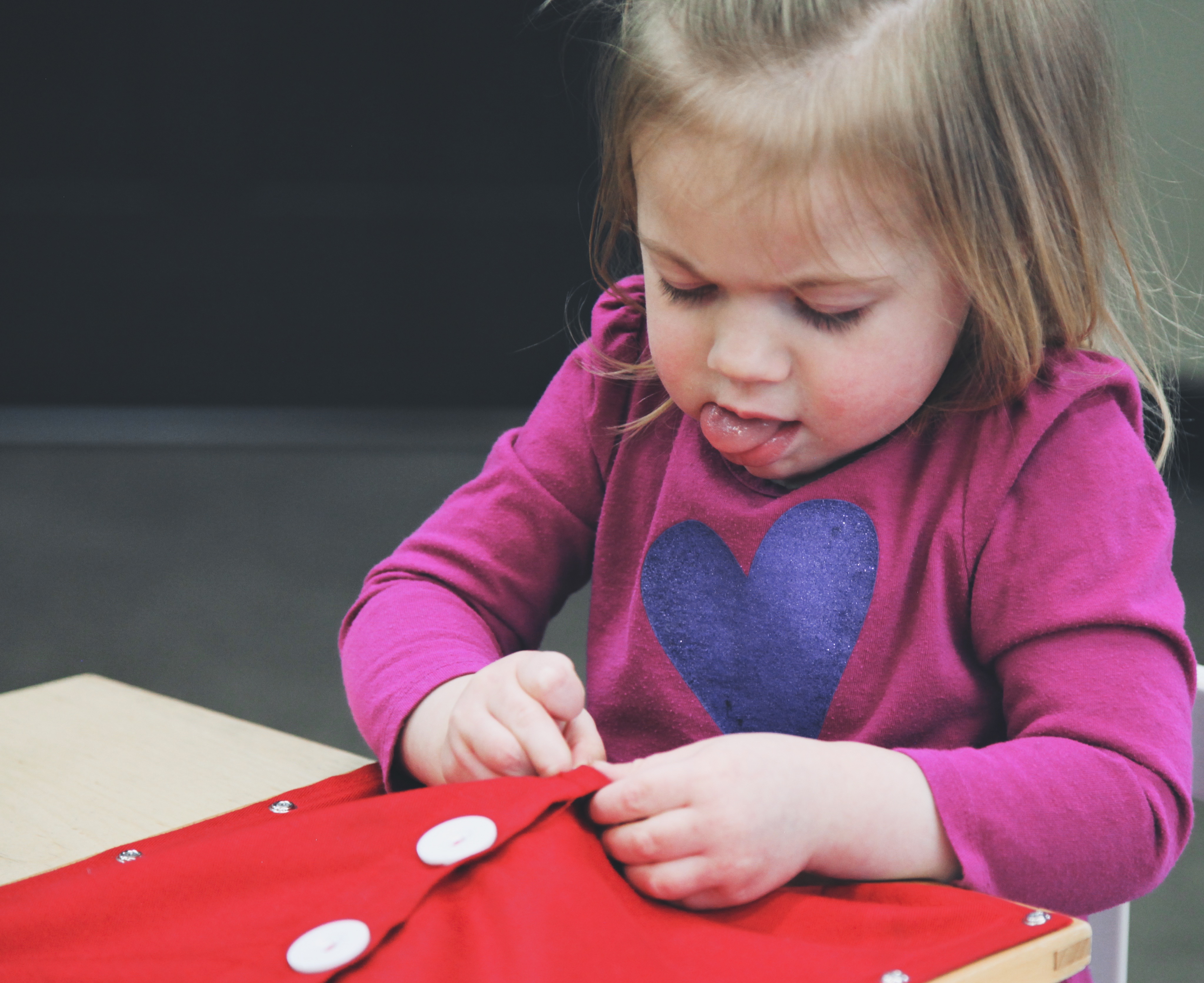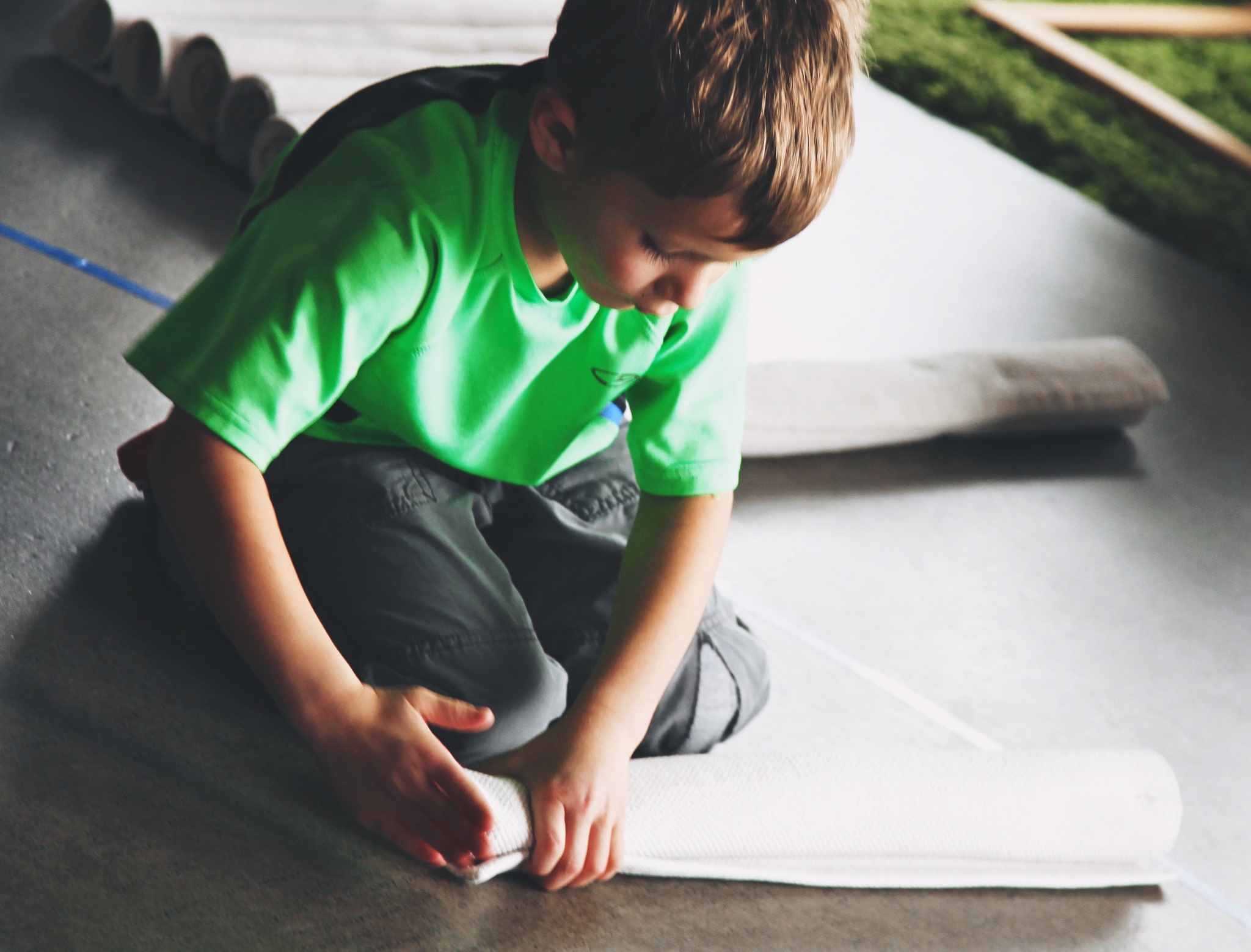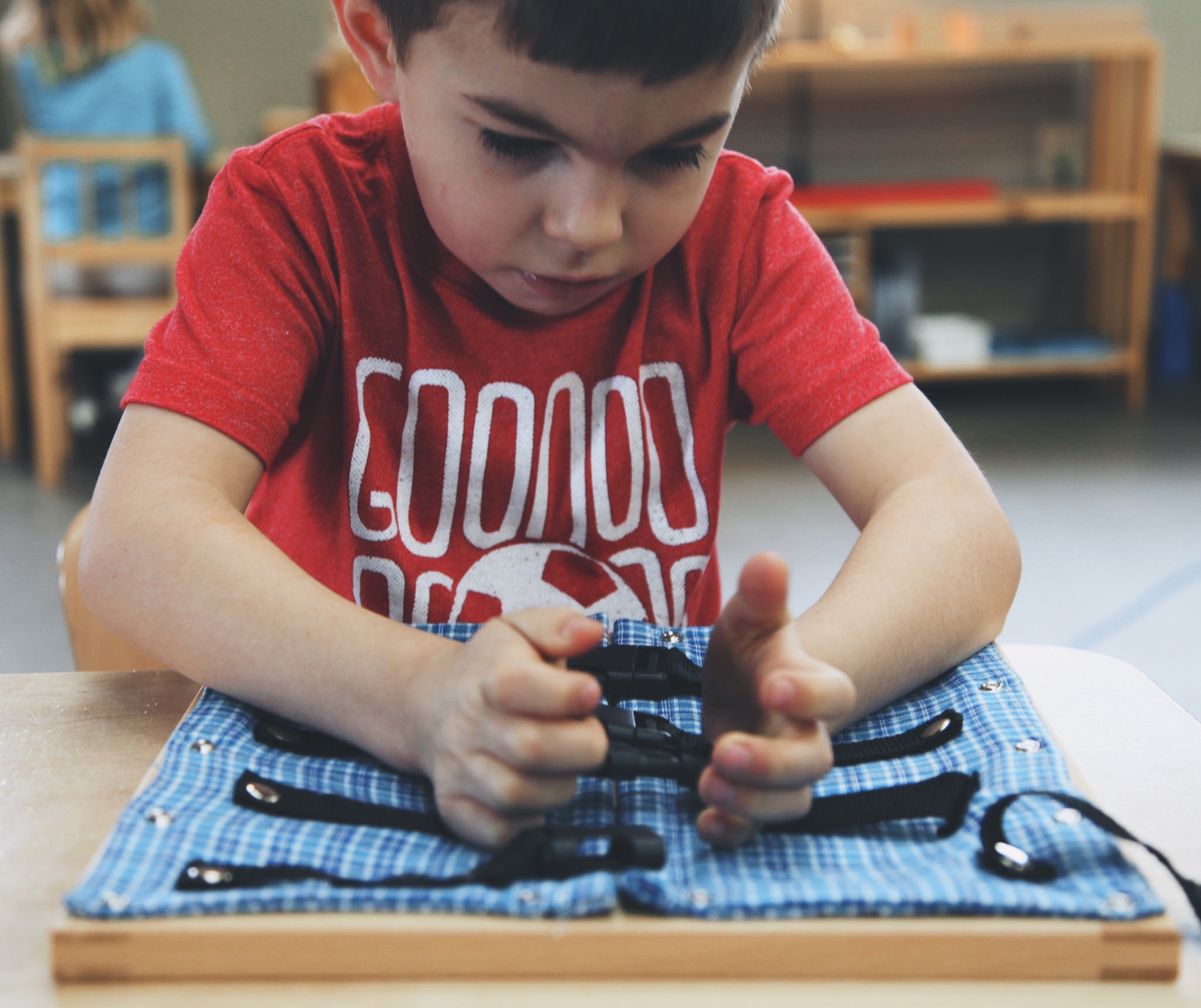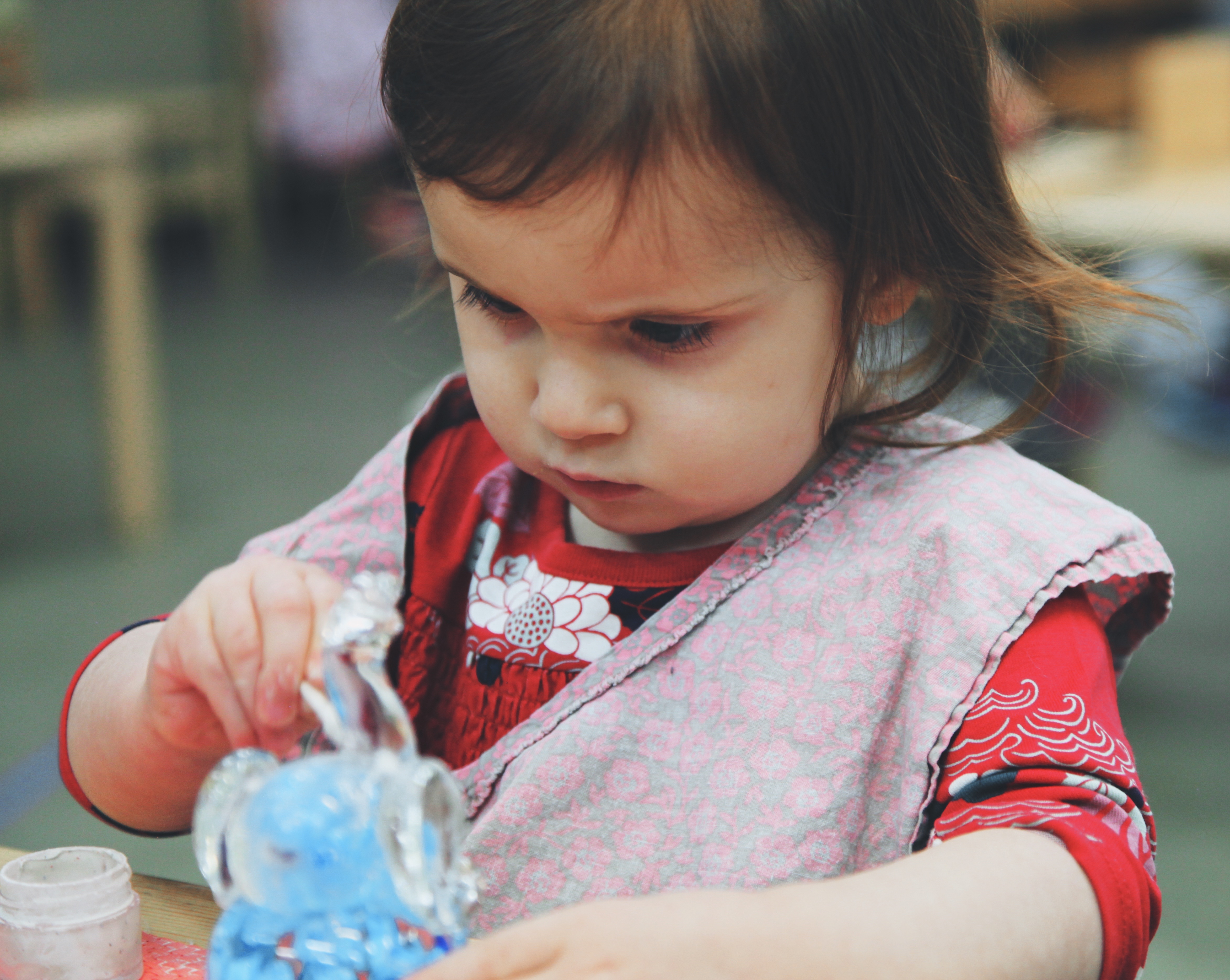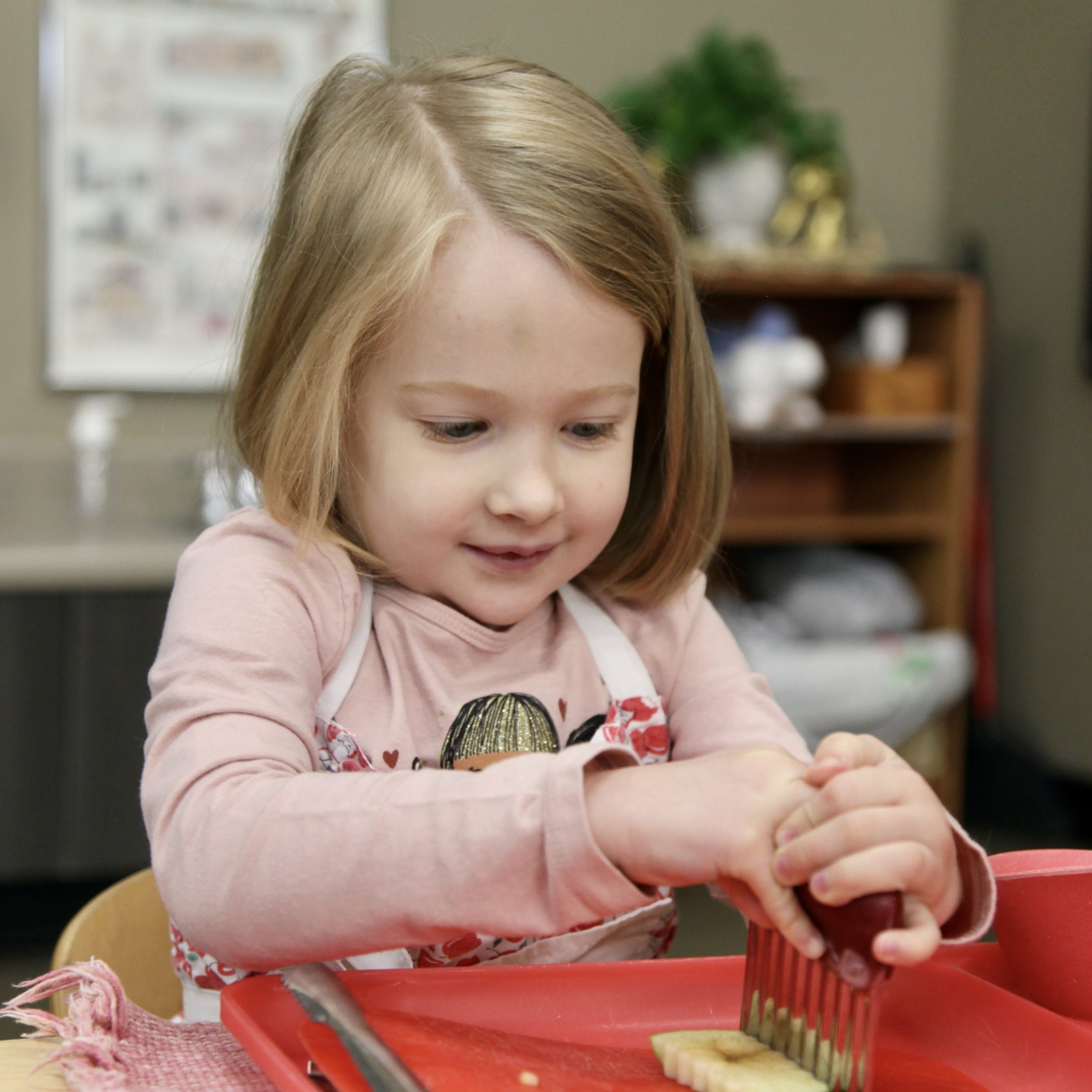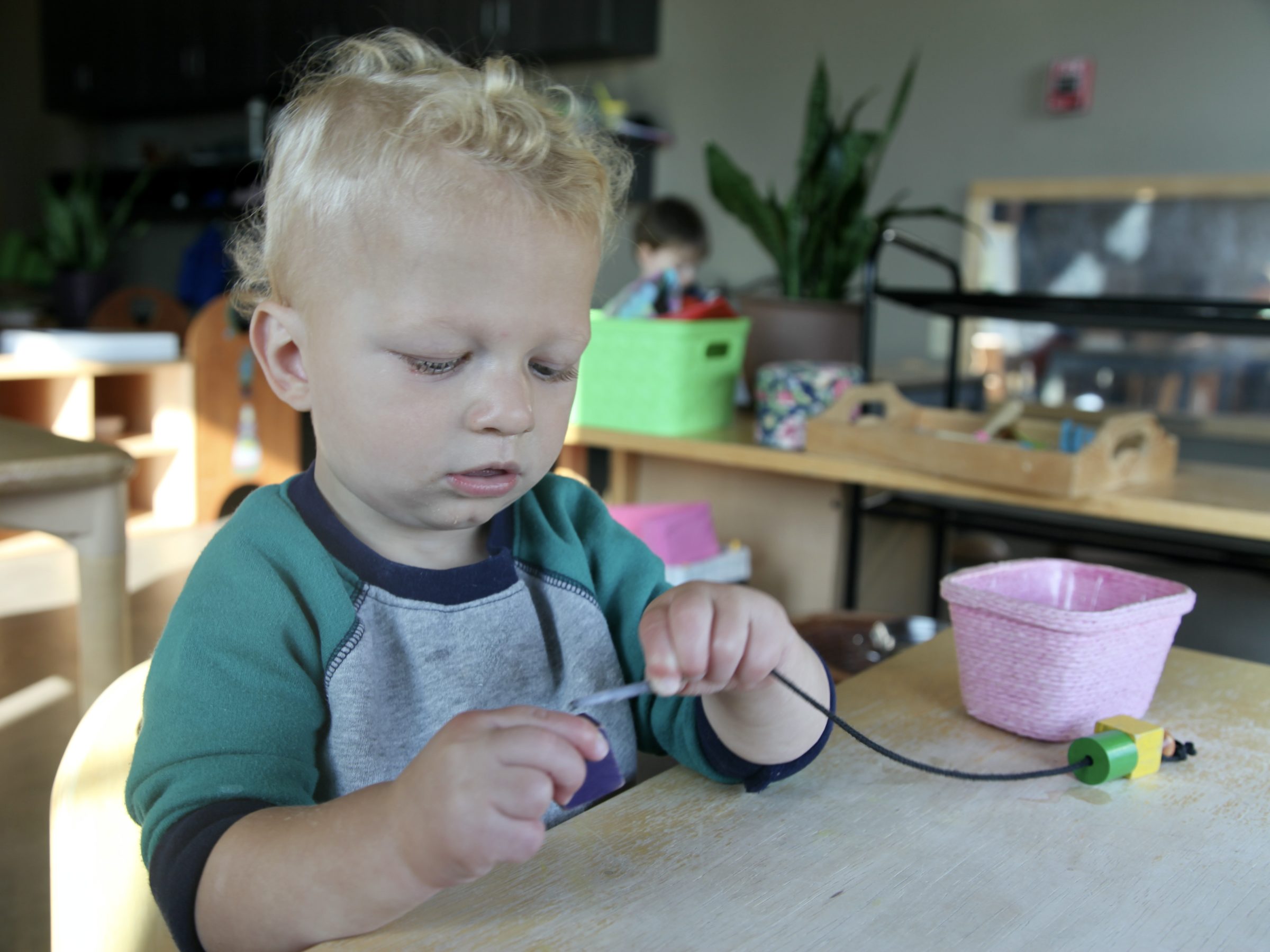No Daily Report
Thoughts & Reflections
The children are learning all day, every day. The adults in the classroom are trained observers, making careful, extensive notes throughout the day of a child’s progress in the various areas of the classroom.
We sometimes are asked, couldn’t we just send a note home with the child of that list, the materials a child used during the morning, what they learned today?
This seems such a natural request, and some schools or daycares do just this, the letter of the day, the theme of the week, what your child learned today.
There are a few reasons we don’t send this kind of data home each day, and we thought we’d go into that a little more deeply here.
First, there is extensive training before an adult becomes a Montessori guide, and that education doesn’t end after earning a diploma. We’re always learning more, about what children are capable of, about the ways children connect with the materials, about how children progress through the curriculum. Simply stating a child used the Binomial Cube, or the Stamp Game, isn’t very valuable without more data. What led up to this day? How successful was a child with the material?
Additionally, we know it is WONDERFUL if a child repeats a material for the whole morning, selects it repeatedly for a week until there’s a level of mastery they find satisfactory. We make note of this, and rejoice in silence, that the observations we made led us to presenting the material that was just right for this child at this stage in their development.
Without that knowledge, receiving slip after slip with “Stamp Game,” the thought might naturally emerge, “Again? Still?” Is my child not getting it? Do I need to do more at home? Is their teacher ignoring them? There would be no way to fully document the joy a child expresses completing a particularly challenging equation, or how proud she is compiling page after page after page of equations, or that she’s internalizing all those addition facts without even a moment of flashcards or quizzing, and that someday when she sits down to do an equation, she’ll “magically” know 8+4=12, “magically” because it isn’t magic at all, it’s her hard work and enthusiasm and practice practice practice.
We notice how deeply a child concentrates, which areas still require a bit of attention and which areas are mastered, where a child explores and experiments and where they’re satisfied. All this goes into the flow chart that determines our action — what, if anything do we need to do? What is a child ready for next?
If a parent received a note home with a child’s progress that stated, “Button Frame,” what would this tell? Is this enough information to know that the Dressing Frames are often one of the earliest materials we’ll see elicit deep concentration, joy, focus, and contentedness from a child? Or that it directly aids in independence with dressing yourself, since you’ll use these same movements to fasten a button?
Alternatively, knowing a child can button, or tie or zip, as the case may be, a Dressing Frame at school might not set a child up for success.
When a child is first showing mastery of, for example, the Zipper Frame, that doesn’t necessarily mean she can zip her own coat. For the very young child, these are two separate entities, independent skills. It is only once she accidentally zips her own zipper, when her muscles do what her mind did not, that she links the two, and delightfully, surprisedly exclaims, “I did it!” a wonder to her own self.
However, a note saying she’s mastered the Zipper Frame might cause a caregiver — thoughtful, well-intentioned, loving — to expect a child to be able to zip her own coat. When she struggles with that zipper, and ends up needing a bit of help getting it started, a bit of the trust between parent and teacher might be inadvertently broken. You said she knows this, but she can’t do it. What’s going on here?
A little bit of information isn’t necessarily helpful. We’re happy to discuss a child’s development, what we’ve seen and where we might go next. We’re paying careful attention to ensure all areas of academic development are growing. You might not work equally in all areas this hour, or even this day, but over the course of a week, a month, are your skills growing? Are you becoming increasingly adept at fine motor control, curious about reading, eager to add and divide, kind and patient with your colleagues?
Though one day, one week might be full of attention to one area, such as language development, or fascination with water, or independence with toileting, a child in a Montessori classroom is living in an incredibly rich world. While she’s scrubbing a table, she’s hearing counting, reading, positive social interactions between children. Just because she’s working on one skill, does not mean that’s all she’s working on.
If a child starts to show a particular affinity for a certain area (we all have favorite ways to spend our time, don’t we?), we’re diligent to respectfully encourage branching out. Perhaps you’d like to write a research paper about Bats, and then you can illustrate it! I know how much you love to read, here are a few word problems for you. You’ve cleaned that table so beautifully, what work would you like to take to it now that it’s ready for you?
This is a life’s work, the growth of a Whole Child, and is worth so much more than a small slip of paper could contain.
Written by:
Charlotte Snyder

